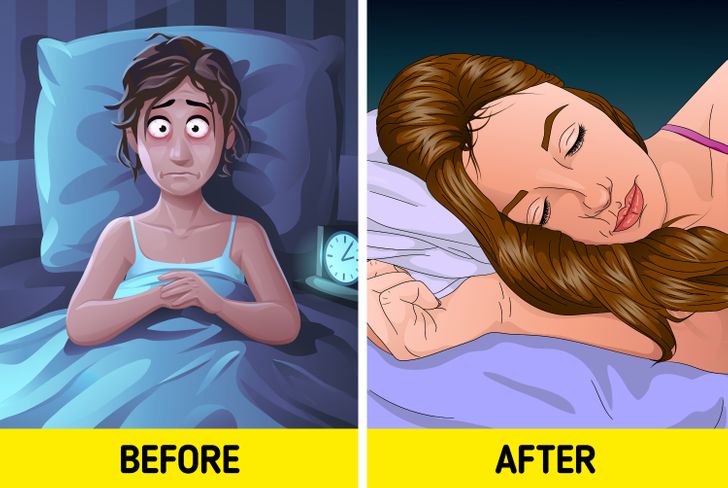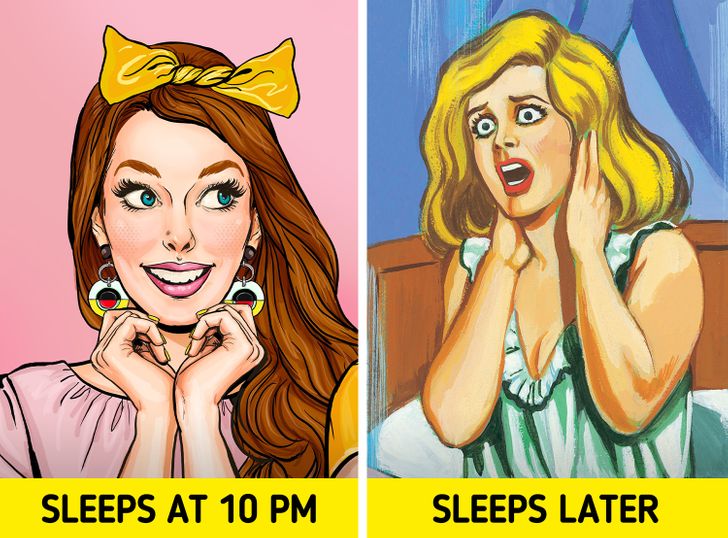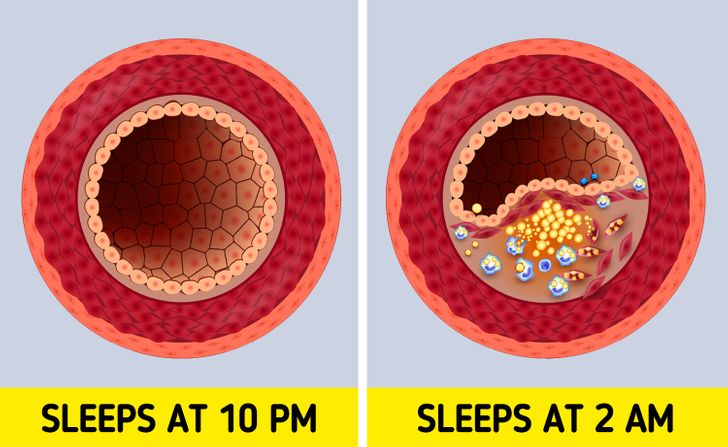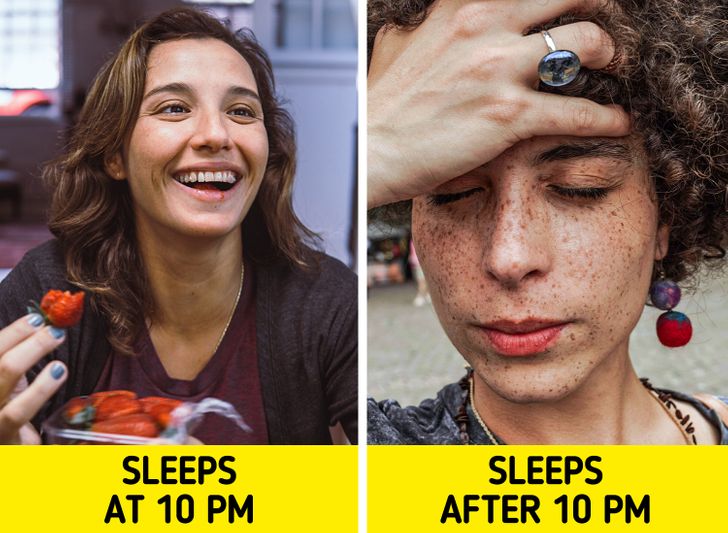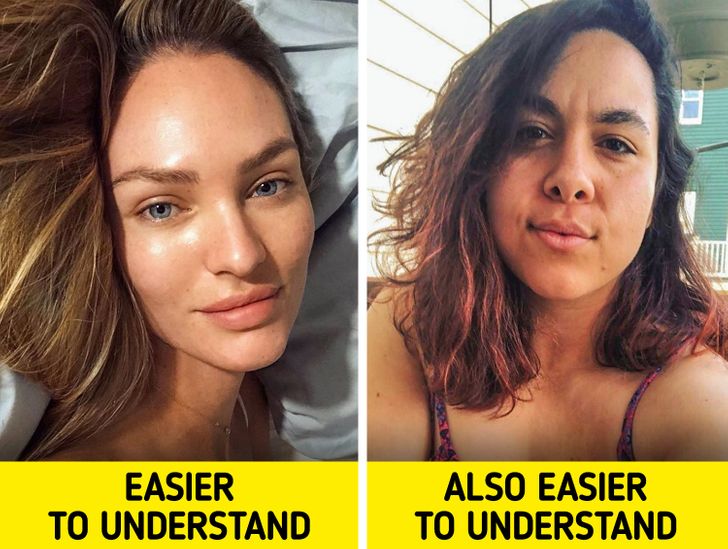cool article!
What Happens to Your Body When You Go to Sleep at 10 PM
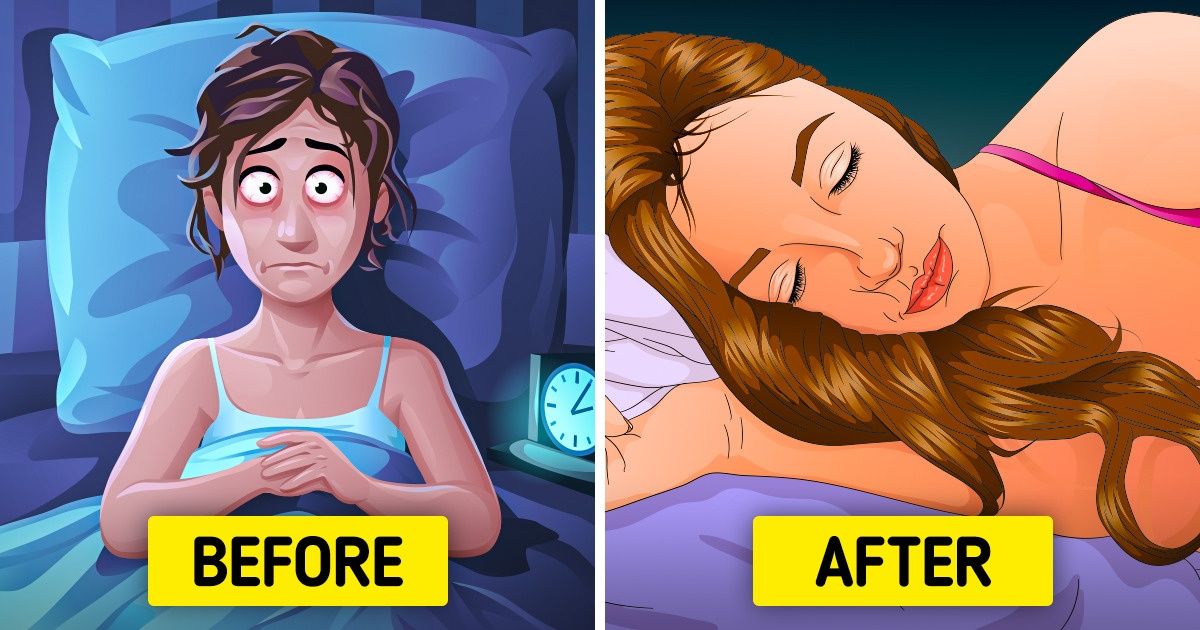
Kim Kardashian, Anna Wintour, and Oprah Winfrey have one thing in common: they all go to sleep at about 10 p.m. It seems that these women are onto something here since sleeping so early can have many positive effects on our body and mind. Perhaps it is no surprise then that some of the most successful women today finish their day so early, to get ready for the next!
After some digging, Bright Side wants to show you why people are catching their Zs so early and why you should start thinking about it for yourself too.
We get the most out of sleep.
Our sleep is divided into 90-minute cycles of heavy and light sleep, from deep non-rapid eye movement (non-REM) sleep to rapid eye movement (REM) sleep. The deepest and most restful part of our sleep is between 10 p.m. and 2 a.m. This means that to be fully rested you should start sleeping early in the cycle.
Also, one study says that sleeping earlier and longer helps us to stop negative and worrisome thoughts that may keep us up at night, another reason to hit the sack at 10 p.m.!
Our body gets back into shape.
When we are in the deep sleep cycle, our body is healing itself by producing growth and repair hormones. This crucial activity will make sure that we are in the best form for the next day, especially when talking about people who are athletic.
Our stress levels drop.
Not getting enough sleep can leave you stressed out because of extra-high levels of the stress hormone cortisol in your body. Too much cortisol can make us feel anxious and can affect our health. But once you start sleeping earlier, you can catch the longer periods of deep sleep that may actually control your cortisol levels.
You may find that you are fully recharged during the day once your stress levels drop, thanks to the rest your mind and body get from a full night’s sleep!
Our risk of disease and illness is smaller.
Several studies have shown that people who sleep earlier are healthier compared to those who work nightshifts or are night-owls. People who fail to catch enough deep sleep have a higher chance of living with diseases like type 2 diabetes, heart disease, and hypertension.
Researchers also found that the phase of deep sleep between 10 p.m. and 2 a.m. is really important for our immune cells. People who had no deep sleep had a lower virus antibody response, meaning that they could get ill easier.
We can control our emotions better.
Studies show that people who clock enough hours of sleep are generally happier in life. When we don’t get enough deep sleep our emotions can be more unstable as we find it harder to control them. Also, sleeping earlier can mean waking earlier, which can be important if we want to catch more daylight and mood-boosting serotonin.
We can understand people’s emotions better.
One study tells us that skipping-out on a good night’s sleep makes it harder to read happiness and sadness. According to the study, more subtle signs of emotions were missed, meaning that it is almost impossible to pick up on these cues to tell if a person is being sincere or not.
However, other emotions like anger and fear were easy to read, perhaps because they are our more primal, survival-based instincts, necessary for understanding danger.
What time do you usually go to sleep? How many hours of sleep do you need to feel refreshed in the morning?
Comments
good for me! I mostly go to bed at 9 sometimes, at 10 but mostly 10 so, I'm kinda feeling perfect after reading this
welll done ✔ 🙌
same
i go to sleep at 1 in the morning
...oops
yes, basically I was in bed reading this article and guess what time it was.. 10:30
😔 sometimes I'm sooo unlucky
Umm... I go to bed at 8
Related Reads
I Refused to Pay for the Coffee Machine at Work—Now HR Got Involved

13 Stories That Prove the Craziest Plot Twists Come From Real Life

I Refuse to Keep Supporting My Daughter and Her 5 Kids for Free
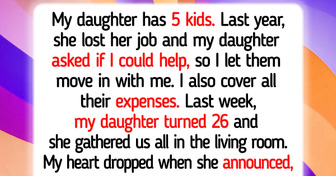
I Refuse to Let My MIL Stay in My Home After She Crossed a Serious Boundary

10 Real-Life Stories That Ended Like a Strange Movie Plot

15 Stories That Show Kindness Is the Quiet Power the World Often Forgets

My MIL Insulted Me in Public—I Taught Her a Lesson

My Stepdaughter Stole My Food to Feed Her Kids, I Don’t Want Her in My House Anymore

15 Stories That Prove Being Kind Costs Nothing but Means the World

I Refuse to Stop Using My Pool Just to Please My Neighbor — Our House, Our Rules

I Refused to Babysit My Grandkids Because My DIL’s Rules Went Too Far

I Refuse to Host Thanksgiving Again—And It Turned My Family Upside Down

